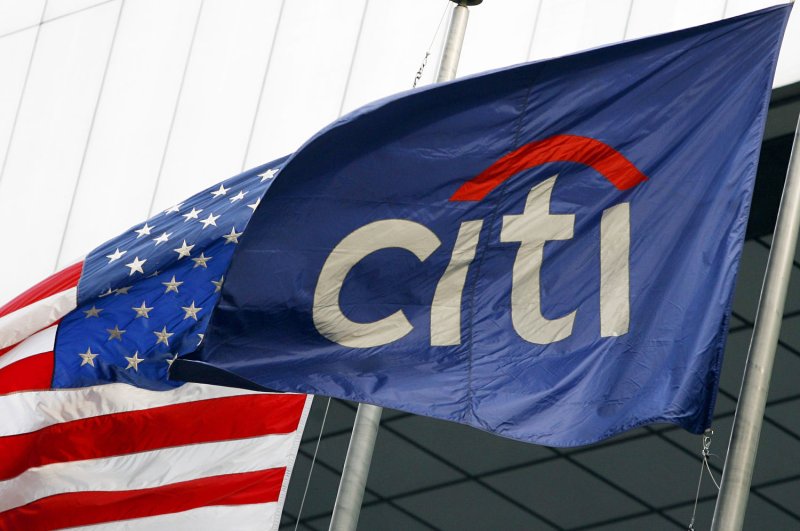Citigroup has settled its duplicity case with regulators for $285 million. UPI John Angelillo/Files |
License Photo
WASHINGTON, Oct. 19 (UPI) -- U.S. banking giant Citigroup agreed to pay $285 million to settle charges that it bet against a $1 billion deal it helped assemble, regulators said.
Citigroup did not admit to any wrongdoing, but agreed to pay a $95 million fine, $30 million in prejudgment interest, and $160 million in reimbursement, all of which goes to investors who were not told at the time of the deal that Citigroup was betting against the collateralize debt obligation securities it had helped put together.
The Securities and Exchange Commission also targeted a Credit Suisse portfolio manager, Samir Bhatt, who agreed to a six-month suspension from working in finance and to pay a $50,000 fine.
SEC fined Credit Suisse $2.5 million for serving as the deal's collateral manager, The Wall Street Journal reported.
Brian Stoker, a former Citigroup employee the SEC alleges put the deal together, who was also charged in the case, did not sign off on the agreement.
The SEC alleged Citigroup made $126 million in profits by taking a short position against the derivatives deal and $34 million in service fees.
Robert Khuzami, director of the SEC's enforcement division, said, "Investors were not informed that Citigroup had decided to bet against them and had helped choose the assets that would determine who won or lost."
"The securities laws demand that investors receive more care and candor than Citigroup provided to these … investors," he said.
Citigroup said it was pleased to put the issue to rest.
In a statement, the bank said, "We are pleased to put this matter behind us and are focused on contributing to the economic recovery, serving our clients and growing responsibly."
"Since the crisis, " Citigroup said, "we have bolstered our financial strength, overhauled the risk management function, significantly reduced risk on the balance sheet, and returned to the basics of banking."










